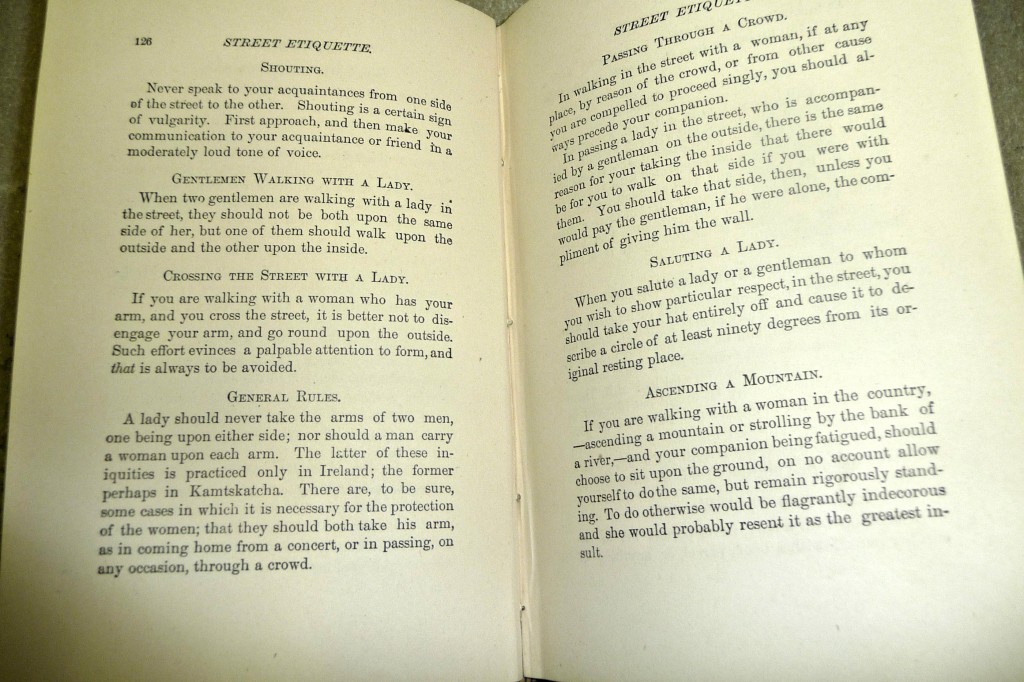While working on preparing print materials for the Rubenstein Library’s upcoming move, I came across a few books on American women’s etiquette. I glanced inside and found rules, rules, and more rules! Although the publication dates range from 1873-1924, the authors seemed to agree on specific social laws of conduct. For instance, one must never shout hello to an acquaintance across the street (“a certain sign of vulgarity”), and a lady should never have a man on each arm or vice versa (apparently, this is only done in Ireland). One of the books decreed never to join in a dance unless you skillfully know the steps. Otherwise, one will “bring disorder into the midst of pleasure!”




These social rules were listed under headings describing every instance of everyday life imaginable- dressing, eating, visiting relatives or friends, attending church, weddings, traveling, even how to not hurt a person’s feelings. It was very interesting to see how vastly different American society and culture were 100 years ago. We have our rules as well (whether followed or not), but nothing like these prim guidelines.
Cullen Cornett is a Holdings Management Assistant in Rubenstein Technical Services.



Wow, the findings you made with these books dedicated on the American women’s etiquette, back in the days, seem to be a great read to me! I’ve been coming across to different rules here and there,but never read an entire book collecting all of them, and now I am really interested in read the laws they shoud follow back then:) The rule about the dancing, really made me laugh and I am sure that, if I have a chance to find some of these books, I will love have it for my summer break:)
These etiquette books, in their comprehensive review of so many kinds of social situations, remind me of medieval forms of confession, which survey all the kinds of sins that a person might need to confess. These etiquette books give their directives in the third-person point of view, telling readers how they should behave. Forms of confession are in the first-person point of view, voiced as if from the speaking penitent’s mouth. The attempt to classify behavior and lead readers toward ideal models of virtue is similar. But boy is there a vast difference from medieval avowals of sin and these recommendations for proper etiquette: in one case, your soul is at stake; in the other, just your embarrassment from tripping over your clumsy feet! Enjoyed your piece. –Michael Cornett